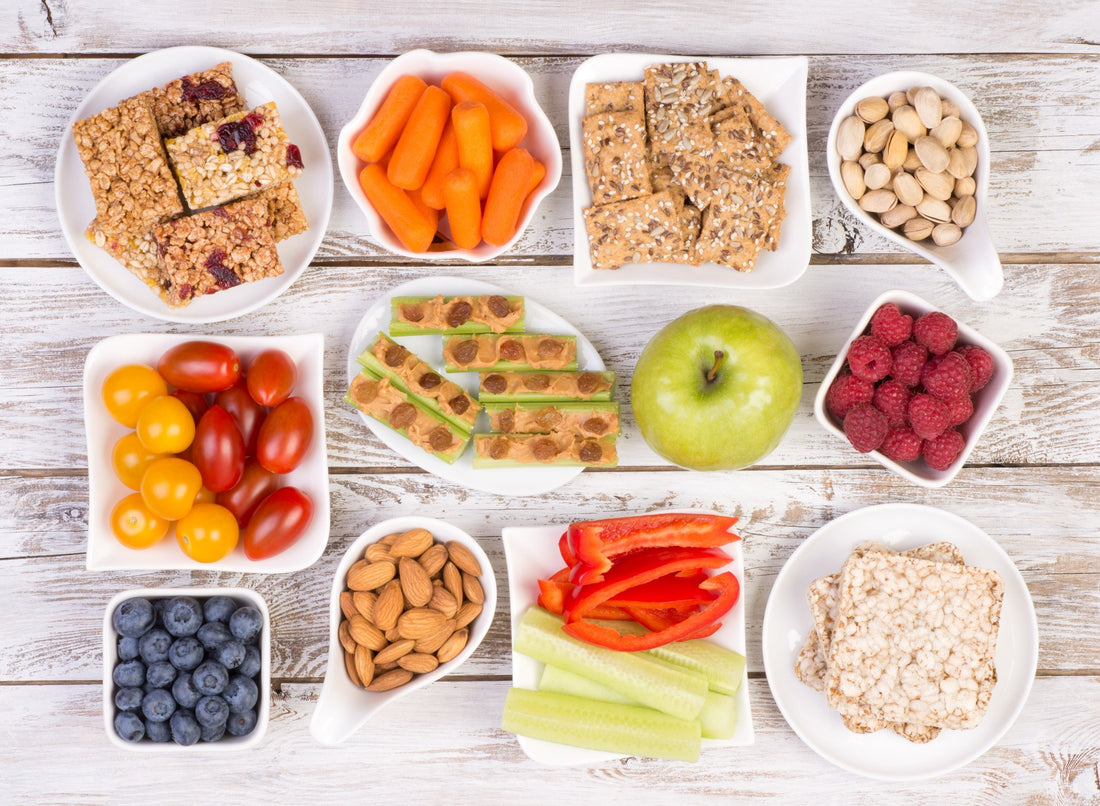Did you know that almost 70% of U.S. non-organic produce sold today is riddled with pesticide residue?
That's an alarming number, considering our U.S. Department of Agriculture has labeled certain foods as difficult to rid of pesticides prior to consumption. To that end, it is recommended to buy organic groceries when you can. The organic versions of certain foods carry less pesticide residue and are generally considered safer to consume.
Interested to know which organic groceries you should be purchasing? Continue reading to find out! But first...
What Does "Organic" Really Mean?
With so many buzzwords and dietary claims prevalent on food packaging today, it is difficult to decipher which products you're buying are quality or not. Knowing there are many different ways in which foods are grown and processed in the U.S. can help when deciding what to buy.
When it comes to buying organic, the term organic simply means foods that are grown and processed via farming methods that are government regulated. This means foods that are grown without pesticides, growth hormones, radiation, or artificial colors or preservatives.
There are a few different "organic" certifications when it comes to food production in the U.S:
- Organic
- 100% organic
- Made with organic
- Specified ingredients
Essentially, these categories contain varying levels of all organic items with either minimal or no extra processing.
Criteria
Farms must meet certain criteria in order to carry the certified organic labels. In addition to meeting the criteria, they must recertify their status each year. A couple of examples of the criteria that must be met each year include:
- No prohibited substances used on land
- The use of synthetic pesticides is prohibited
- Utilization of organic seeds over nonorganic
- Prohibited use of genetic engineering
While the criteria examples above may be simplified, it should be noted that the health benefits associated with the consumption of organic foods continue to grow year after year.
Fruits
To that end, organic foods are able to offer reduced exposure to harmful chemicals and pesticides. In turn, offering increased exposure to beneficial vitamins and nutrients.
Let's go over some examples of organic grocery options that contain higher amounts of such vitamins.
1. Apples
We've all heard the "an apple a day keeps the doctor away" phrase. However, conventional apples typically carry potential foodborne pathogens and pesticides. Apples have thin skin, which means any chemical pesticides are likely to leach into the flesh of the apple.
Choosing organic means you not only avoid ingesting pesticide residue, but you're also ensuring the nutritional value of the apple itself is better for you.
2. Cherries
Cherries are another fruit filled with beneficial nutrients and vitamins like C and A. They're filled with fiber and potassium which is great for your muscles, nerves, and blood pressure regulation.
The nutritional benefits of cherries may be negated by the pesticides found on non-organic cherries. Cherries may have a minimum of two harmful pesticides which have the potential to be carcinogenic and aid in neurotoxicity.
3. Berries
Berries are another great option to consider when buying organic as any potential pesticides and harmful chemicals can be difficult to wash off.
In turn, berries offer a whole host of nutritional benefits. For example, acai berries are a superfood powerhouse. They're loaded with plenty of antioxidants and essential nutrients like fiber, calcium, and amino acids. Organically sourced acai berries provide a whole host of nutritional properties, making them an excellent addition to the list of foods you should grab on your next visit to your local organic grocery store.
Vegetables
Crop rotation, soil preservation, and water quality all play a part in providing nutrients to organically farmed food. Organic vegetables should certainly be included as part of your organic groceries list.
4. Celery
Celery is not a glamorous superfood vegetable, however, as it is a kitchen staple, buying organic is a good way to go.
Celery itself is a very porous vegetable, which means pesticides are easily retained within the stalk itself. The next time you're chopping up celery for a soup, it's a smart idea to pick up an organic bunch.
5. Cauliflower
Cauliflower has had a resurgence in popularity lately. Cauliflower rice, cauliflower pizza, cauliflower wings...you name it, there's a cauliflower version of it.
While cauliflower itself isn't linked to extremely high levels of pesticides, there are certain pesticides used during the growing process that harm bees. As our food supply depends on bee pollination, it can be helpful to buy organic cauliflower as a means to limit harmful pesticides and support eco-friendly farming options.
6. Spinach
Spinach is another superfood that should be added to your organic grocery delivery. Non-organic spinach has high levels of pesticides which puts you at risk for consuming them. Pesticide residue sits directly on the leaves, making it a safer choice to go organic.
The high nutrient content of spinach provides a whole host of health benefits. Next time you're making your morning fruit smoothie, feel free to add a handful of organic spinach for an extra hit of calcium and vitamin D.
7. Potato
Another vegetable to consider adding to your organic grocery online shopping list is the humble potato. Potatoes are an incredibly versatile vegetable, adding nutrients to many classic dishes around the world.
Because potatoes are grown deep in the soil, the likelihood of potatoes absorbing pesticides from the ground is high. Even after washing and peeling your potato, pesticides may have leached through the skin and into the flesh of the potato. Another great reason to go organic the next time you want to make homemade fries or hashbrowns.
Buy Organic Groceries Today
In today's world, you don't have to sacrifice healthy fruits and vegetables due to pesticide exposure. By focusing on purchasing organic when you can, you can limit the risk of exposure. If you're new to buying organic groceries, a good place to start is by searching 'organic grocery store near me'.
There are plenty of options today, with many suppliers offering online shopping capabilities.
If you're in the mood for healthy, organic fruits, be sure to check out our delicious options here at Nativo! We're in the market of offering healthy foods for a healthier you and a more sustainable planet for all.

